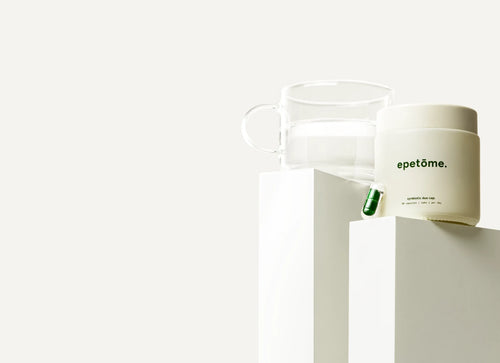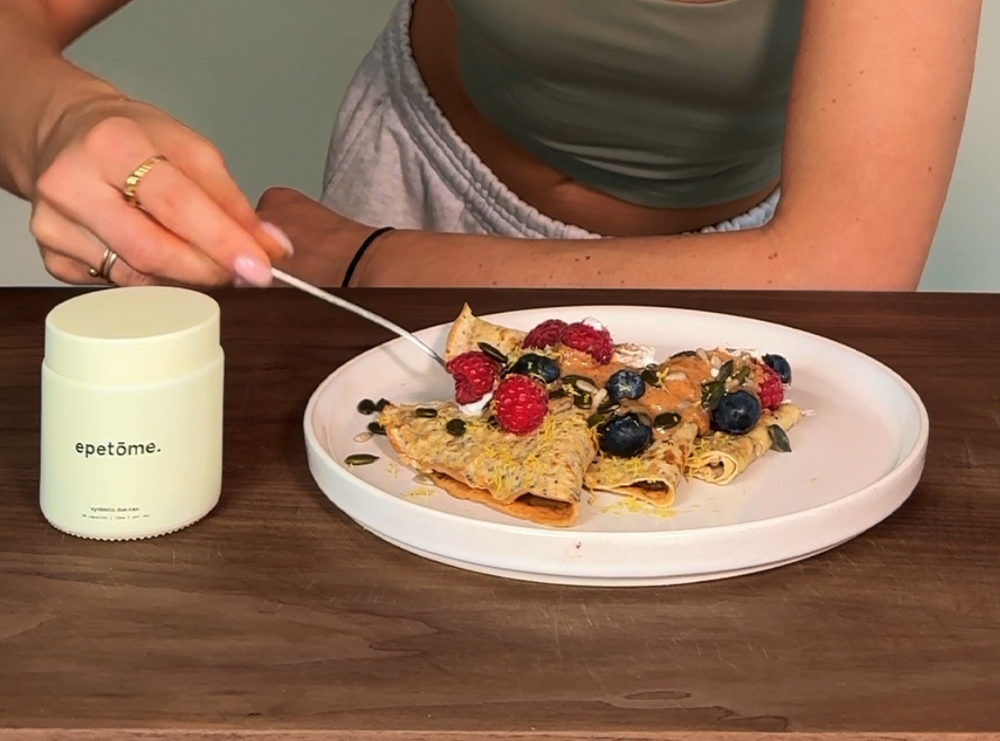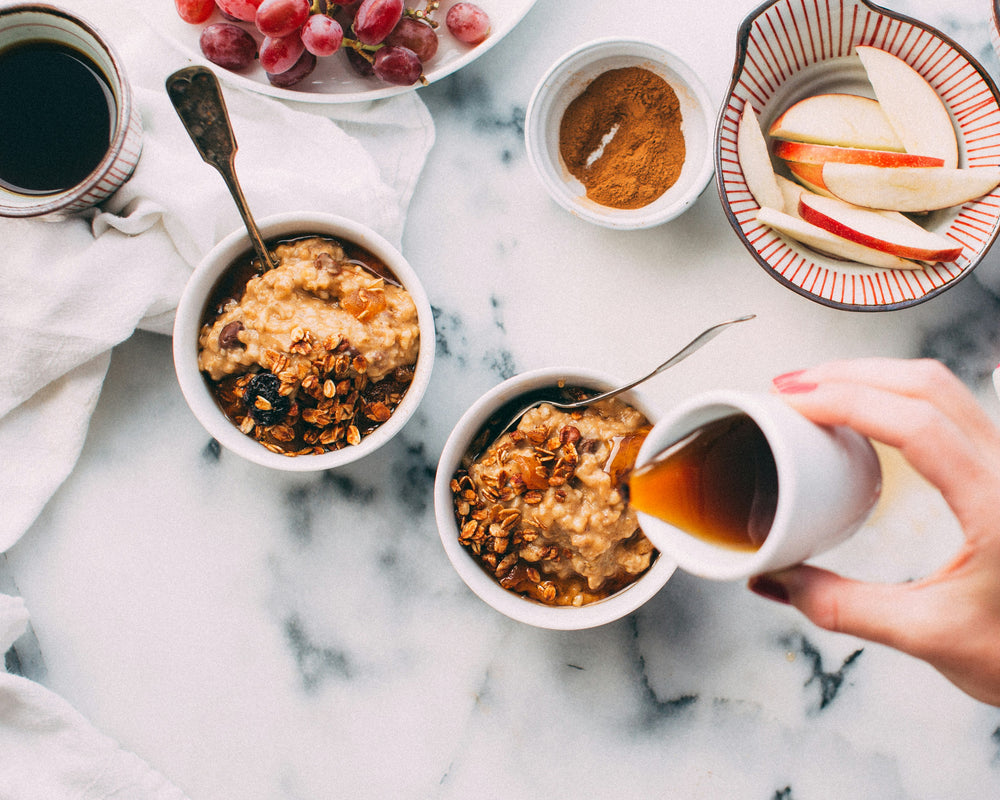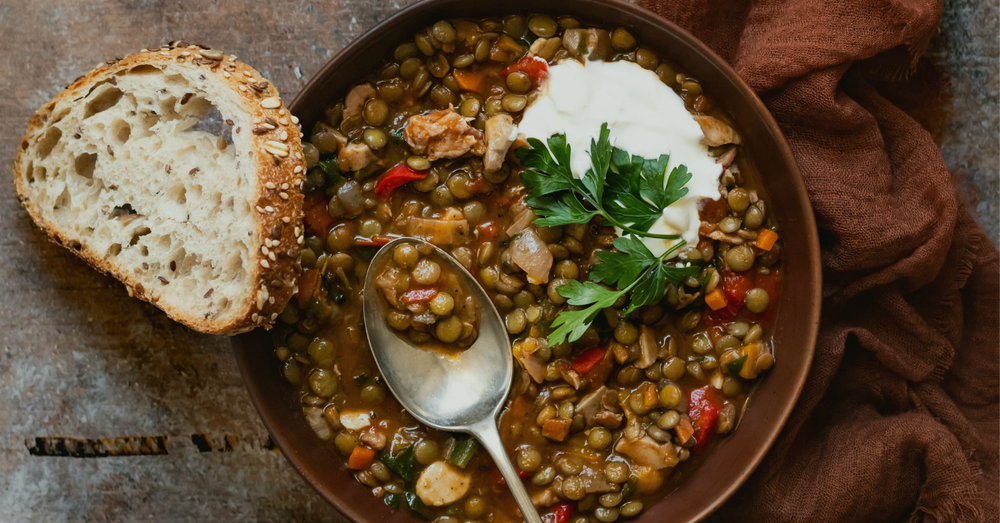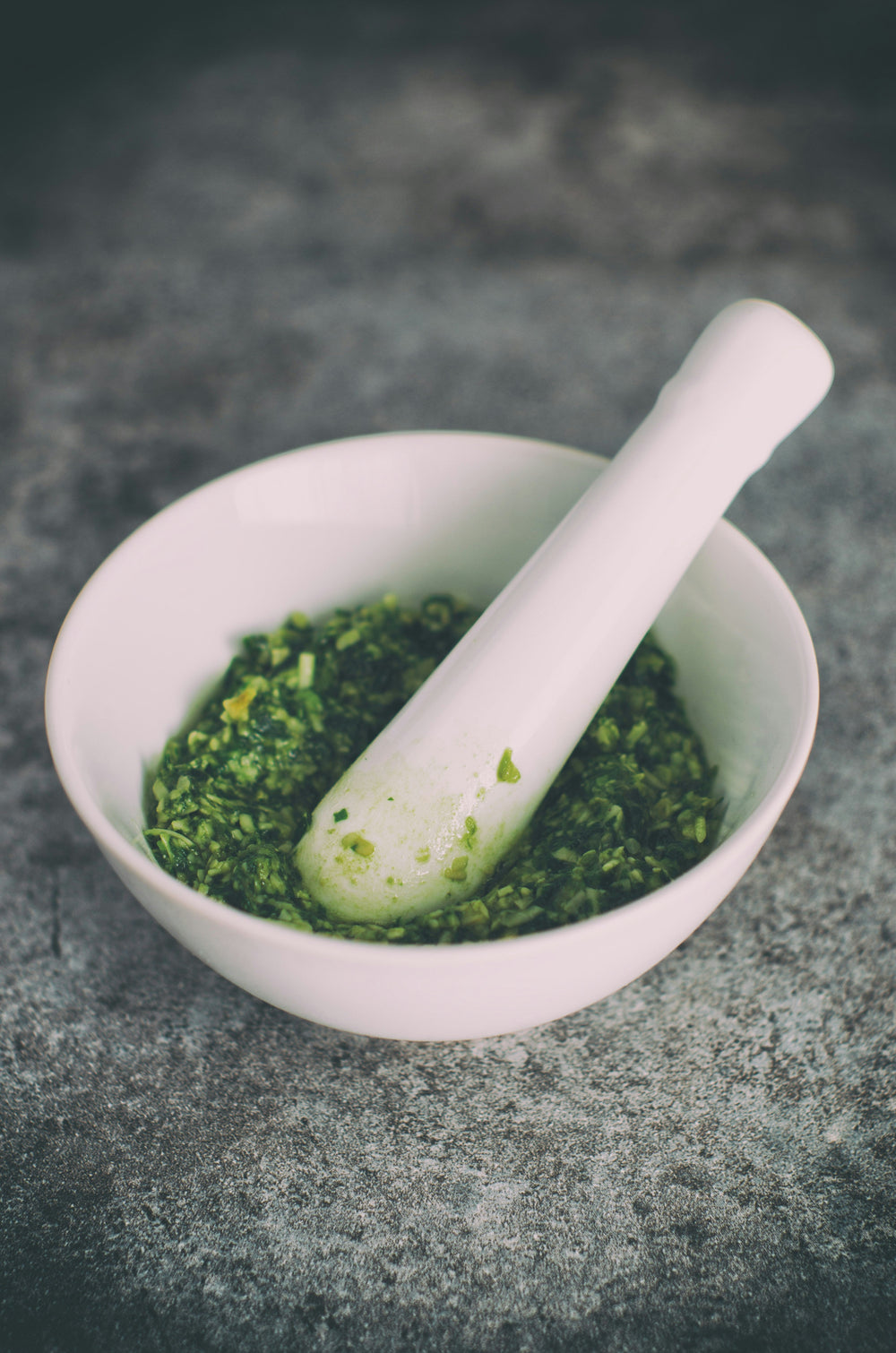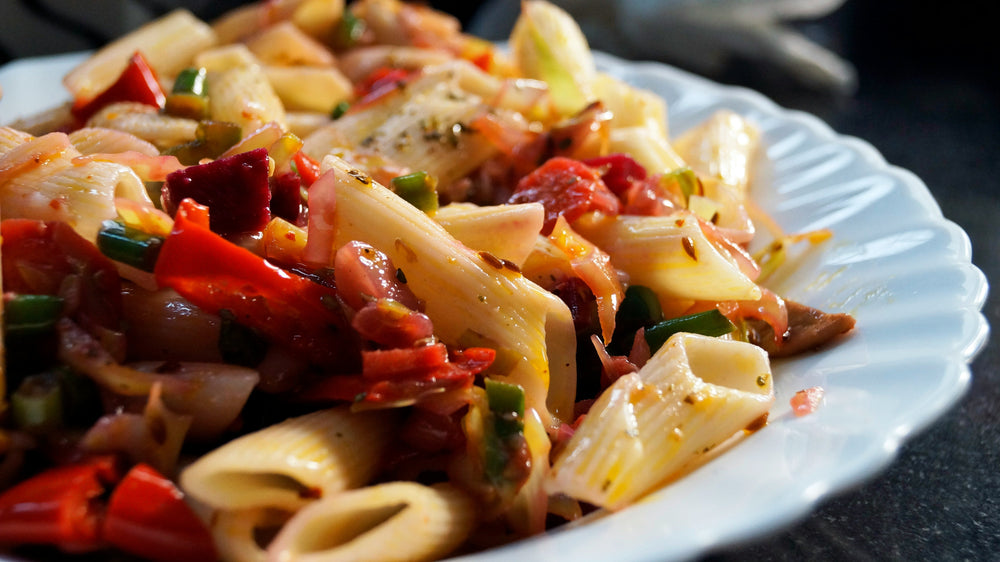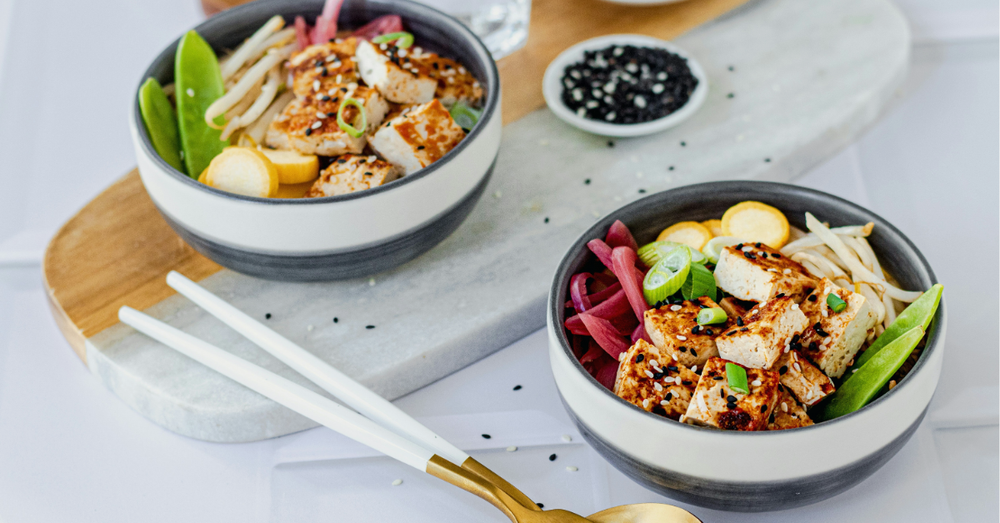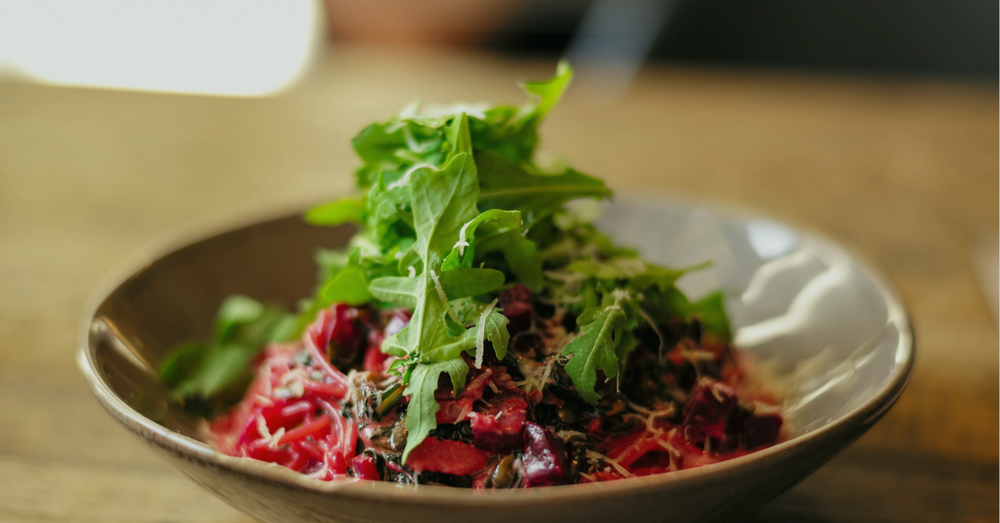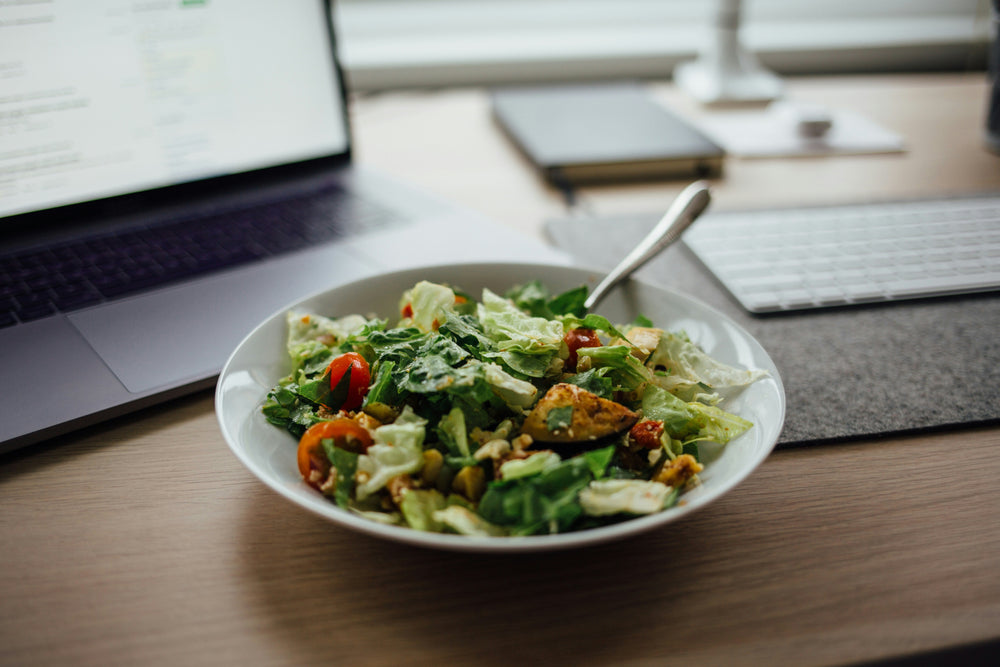This creamy green soup brings together broccoli, cauliflower, and kale for a delicious bowl that feels both comforting and energising. Finished with crispy chickpeas and toasted almonds, it is an easy way to enjoy a whole day’s worth of greens in one simple, nourishing meal.
understanding constipation: can probiotics help?
We’ve all heard of constipation and most of us have struggled with it short-term or long term. Constipation is generally defined as having fewer than three bowel movements a week, and it can leave you feeling uncomfortable, bloated, or sluggish. So what exactly is happening inside your gut to cause this? What Happens Inside Your Gut? Your digestive system works like a well-oiled machine, but sometimes things might slow down. "Motility" refers to the wave-like muscle contractions in your gut that move food and waste along the digestive tract. When these contractions slow down, waste moves through the system more slowly, leading to constipation. There are a number of factors that can affect your gut's motility, leading to constipation. Common culprits include: Travel: Changes in routine and diet can disrupt your digestive system. Stress: Emotional stress can impact your gut's function. Dehydration: When you’re not drinking enough water, your body absorbs more water from your waste, making it harder to pass. How Do Probiotics Help with Constipation? We know from research that short-chain fatty acids (SCFAs) which are produced by your gut bacteria when they break down dietary fibre may help stimulate muscle contractions in the colon. So, maintaining a healthy balance of gut bacteria is key to ensuring everything moves as it should. It’s important to remember that your gut and brain are constantly communicating. They send signals through nerves, hormones, and even through the microbes in your gut. For example, gut microbes help produce serotonin, a neurotransmitter that plays a role in regulating gut movement. Do all Probiotics Help? The answer isn’t straightforward, as not all probiotics are the same. Different strains of probiotics have different effects on the gut, which is why it’s essential to know which strain is in your probiotic. Some strains have been specifically...

We’ve all heard of constipation and most of us have struggled with it short-term or long term. Constipation is generally defined as having fewer than three bowel movements a week, and it can leave you feeling uncomfortable, bloated, or sluggish. So what exactly is happening inside your gut to cause this?
What Happens Inside Your Gut?
Your digestive system works like a well-oiled machine, but sometimes things might slow down. "Motility" refers to the wave-like muscle contractions in your gut that move food and waste along the digestive tract. When these contractions slow down, waste moves through the system more slowly, leading to constipation.
There are a number of factors that can affect your gut's motility, leading to constipation. Common culprits include:
-
Travel: Changes in routine and diet can disrupt your digestive system.
-
Stress: Emotional stress can impact your gut's function.
-
Dehydration: When you’re not drinking enough water, your body absorbs more water from your waste, making it harder to pass.
How Do Probiotics Help with Constipation?
We know from research that short-chain fatty acids (SCFAs) which are produced by your gut bacteria when they break down dietary fibre may help stimulate muscle contractions in the colon. So, maintaining a healthy balance of gut bacteria is key to ensuring everything moves as it should.
It’s important to remember that your gut and brain are constantly communicating. They send signals through nerves, hormones, and even through the microbes in your gut. For example, gut microbes help produce serotonin, a neurotransmitter that plays a role in regulating gut movement.
Do all Probiotics Help?
The answer isn’t straightforward, as not all probiotics are the same. Different strains of probiotics have different effects on the gut, which is why it’s essential to know which strain is in your probiotic. Some strains have been specifically studied for their ability to improve bowel regularity and stool consistency.
For example, Lactobacillus acidophilus NCFM, Bifidobacterium lactis HN019, and Bifidobacterium bifidum-06 which are found in Epetōme have all been specifically studied and shown to improve symptoms of constipation. These strains help promote regular bowel movements by improving gut motility and balancing the gut microbiome.
However, it’s important to note that probiotics can take time to work, and their benefits may not be immediate.
Can Probiotics Replace Laxatives?
While probiotics play an important role in improving gut health, they don’t work in the same way as laxatives. Laxatives stimulate your gut to get things moving quickly, providing fast relief, but they don’t create lasting change in your gut’s environment.
Probiotics, on the other hand, help to improve the balance of bacteria in your gut over time, which can lead to longer-term improvements in digestion and regularity. So, while probiotics may not provide instant relief, they are an important part of supporting long-term gut health.
Tips for Managing Constipation
Diet and lifestyle play an important role when it comes to constipation. So here are a few things to keep in mind:
-
Increase Your Fibre Intake: Fibre adds bulk to stool and nourishes your beneficial gut bacteria. Aim for 30 grams of fibre daily, ideally from plant-based sources like fruits, vegetables, whole grains, nuts, and seeds.
-
Stay Hydrated: Drinking plenty of water helps keep stool soft and easier to pass. Make sure to drink regularly, especially when eating more fibre.
-
Exercise: Physical activity can help get your digestive system moving. Even light exercise, like walking, can promote regular bowel movements.
-
Manage Stress: Chronic stress can negatively affect your gut. Finding healthy ways to manage stress, such as yoga, meditation, or deep breathing exercises, can help support a healthier gut.
Conclusion
Constipation is a common concern, but with a few simple lifestyle changes and the right support, you can get your digestive system back on track. Staying hydrated, eating a fibre-rich diet, managing stress, and giving probiotics time to work can all help to keep your gut happy and healthy.
References
Araújo, A. de M., Botelho, P. B., Ribeiro, D. J. S., Magalhães, K. G., Nakano, E. Y., & Arruda, S. F. (2021). A multiple-strain probiotic product provides a better enzymatic antioxidant response in individuals with constipation in a double-blind randomized controlled trial. Applied Nutritional Investigation, 2021, 111225. https://doi.org/10.1016/j.nut.2021.111225
Lai, H., Li, Y., He, Y., Chen, F., Mi, B., Li, J., Xie, J., Ma, G., Yang, J., Xu, K., Liao, X., Yin, Y., Liang, J., Kong, L., Wang, X., Li, Z., Shen, Y., Dang, S., Zhang, L., Wu, Q., Zeng, L., Shi, L., Zhang, X., Tian, T., & Liu, X. (2023). Effects of dietary fibers or probiotics on functional constipation symptoms and roles of gut microbiota: a double-blinded randomized placebo trial. Gut Microbes, 15(1), 2197837. https://doi.org/10.1080/19490976.2023.2197837
lifestyle. gut health recipes.
ready in 10 minutes
herb-whipped cottage cheese chicken bagels.
These basil whipped cottage cheese protein bagels make a fresh, high-protein breakfast or lunch, combining creamy herb-blended cottage cheese with juicy chicken, rocket, and tomatoes. They’re quick to assemble, packed with flavour, and perfect for a nourishing breakfast or light lunch.
ready in 10 minutes
kiwi chocolate protein chia pots.
These Kiwi Chocolate Protein Chia Pots make an ideal high-fibre, high-protein breakfast that keeps you full and energised all morning. They’re quick to prepare, easy to store, and perfect for a healthy grab-and-go option.
ready in 15 minutes
spiced apple porridge.
This spiced apple and pumpkin seed porridge is a warming, high-fibre breakfast that’s perfect for cosy mornings. Made with creamy oats, gently caramelised apples and a crunchy pumpkin seed topping, it’s ready in just 15 minutes and serves one.
ready in 50 minutes
prep-ahead baked blueberry oats.
These prep-ahead oven-baked oats with blueberries and bananas are rich in protein and fibre, making them a nourishing, gut-friendly breakfast to enjoy all week.
ready in 15 minutes
spicy green eggs with feta.
These spicy green eggs with feta are a quick, protein-rich recipe packed with gut-friendly ingredients like spinach, courgette, and spring onion. Baked in the oven or air fryer, they’re simple to make, full of flavour, and support digestion with a balance of fibre, protein, and healthy fats. Perfect for breakfast, brunch, or a light meal, this vibrant dish proves that nourishing your gut can be both delicious and easy.
ready in 10 minutes
egg wrap with pesto.
Bright, fresh, and ready in just 10 minutes, this flavour-packed wrap serves one and is ideal for breakfast, lunch, or any time you’re after something simple yet filling.
ready in 10 minutes
peach cobbler overnight oats.
Start your day with a gut-friendly twist on a classic dessert. The peach cobbler overnight oats serve 2–3 and takes just 10 minutes to prepare the night before. Packed with fibre, flavour and feel-good ingredients, it’s the perfect make-ahead option for busy mornings or a nourishing snack you can enjoy any time of day.
ready in 15 minutes
smoky egg salad bagel crunch.
This smoky harissa egg bagel is the perfect 15-minute meal. Made with creamy Greek yoghurt, tangy pickles, and a hint of spice, it’s a high-protein twist on classic egg salad that delivers on both taste and texture. Ideal for busy days, this easy bagel recipe makes lunch feel gourmet without the effort.
ready in 20 minutes
chewy breakfast matcha protein cookies.
Soft, satisfying, and subtly sweet—these breakfast cookies are made to fuel your morning the right way. With fibre-rich oats, plant-based protein, and antioxidant-packed matcha, they’re a gut-friendly grab-and-go option that doesn’t compromise on flavour or function.
ready in 15 minutes
lemon & poppy seed pancakes.
Emily's light, gut-friendly crêpes are the perfect balance of fibre, protein, and healthy fats to support digestion and keep you feeling great.
ready in 10 minutes
carrot cake breakfast oats.
Start your day with a delicious and nutritious breakfast option - Carrot Cake Oats. Filled with fibre diversity to promote healthy digestion.
